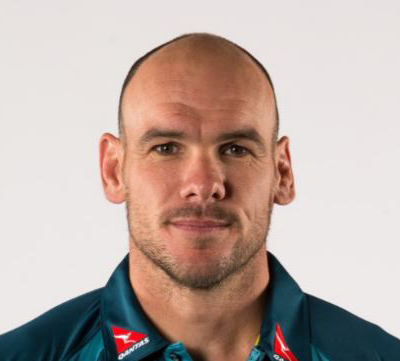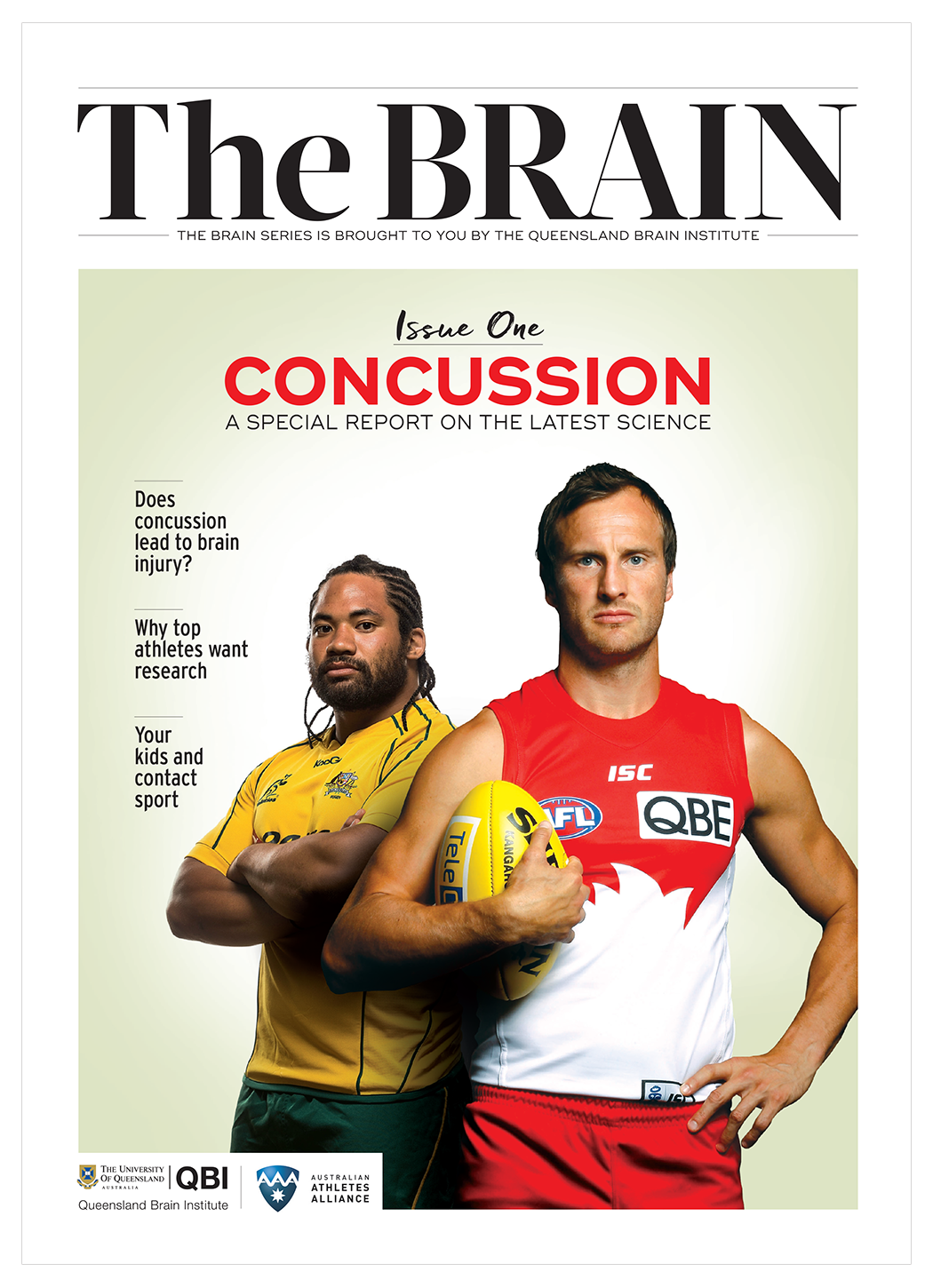Nathan Grey
 Former Wallabies player and now assistant coach at the Wallabies, Nathan Grey has had several concussions in his years playing rugby union, including six years representing Australia.
Former Wallabies player and now assistant coach at the Wallabies, Nathan Grey has had several concussions in his years playing rugby union, including six years representing Australia.
Because of a congenital neck issue, Grey was probably more susceptible to the effects of head knocks. "I had a few episodes where I lost feeling in my hands and feet for short periods of time," he says.
One particularly nasty concussion happened in a game when he was 21 and accidentally kicked in the head. "I have only snippets of memory of the incident, yet clearly remember the ambulance ride to the hospital," he says. "I was fully recovered in about three hours" he adds.
If there's a common thread among athletes in team sports, it's that they love the camaraderie as much as the game. Putting your body on the line is part of that commitment to the team.
And playing in an era of bravado around injuries, Grey recalls his main concern about his concussions was not for his health, but about whether or not he could "contribute to the team performance".
If he has his time again and played during an era of more knowledge around concussion, Grey says he would have gone along with the protocols. "If I had been removed from the field due to correct reasons, then I honestly think I would've been angry at the time, but knowing what we do know about the potential impact of these concussive incidents, I would be comfortable that it was in my best interests not to continue to play," he says.
Grey is concerned about the accumulated impact of his multiple concussions, but has reconciled his fate. "Having retired from playing nothing can be done now," he says. "But increased knowledge about concussion will be great for helping people potentially in the future."
As a coach, he has seen the rapid advance of concussion awareness in sport, particularly in the last five years. "It is certainly being seen as a priority around player welfare, and this is a good thing," he says. As more research has become available, there has been more informed people to help advise with management of concussion, he adds.
Grey says more awareness around better techniques during play go a long way to help prevent concussions.
“As a defence and contact coach I feel that correct technique and a good understanding of how to enter contact situations can reduce the possibilities of receiving a concussion significantly. I feel I can help make a difference through this avenue.”
The biggest outcome from more concussion research, he says, is a greater enjoyment and participation in sport. "Then people will know that governing bodies will be looking after themselves, their kids and friends' best interests around concussion," he says. "Educating the people involved has to be the number one priority. It's important to understand what is or isn't a concussion so we can better balance player welfare and performance. Knowledge is power."

